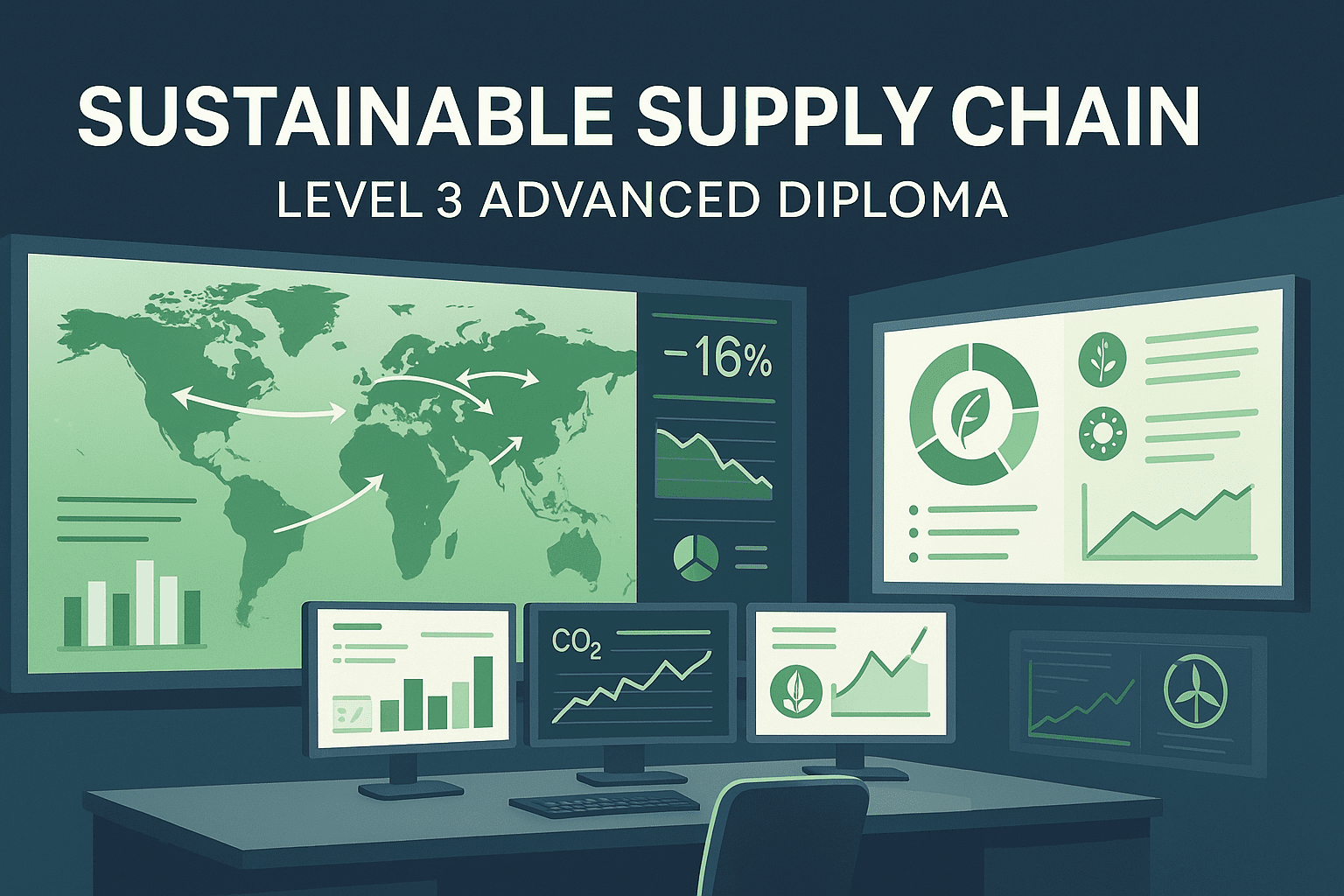Course Features
Price
Study Method
Online | Self-paced
Course Format
Reading Material - PDF, article
Duration
7 hours, 5 minutes
Qualification
No formal qualification
Certificate
At completion
Additional info
Coming soon
- Share
Overview
The Political Study Level 3 Advanced Diploma provides a detailed introduction to key areas of political science, offering students a broad understanding of political theory, ideologies, and systems of governance. The course begins with an exploration of classical and modern political theories, ranging from Plato and Aristotle to contemporary ideologies such as feminism and postmodernism. Students will then delve into comparative politics, learning about different forms of government, political institutions, and the global landscape of political systems. The course includes case studies from various regions, allowing for a hands-on understanding of how political systems function worldwide.
In addition to political theory, the course examines the critical field of international relations, exploring key theories like realism and liberalism, and studying global institutions such as the United Nations and the World Bank. Students will analyze pressing global issues like climate change and terrorism, exploring the intersection of politics and economics through political economy, which includes the study of capitalism, socialism, and mixed economies. The course also covers public policy analysis, focusing on the policymaking process, implementation, and evaluation, with case studies on education, healthcare, and environmental policy.
Political research methods, including quantitative and qualitative approaches, are an integral part of the curriculum, giving students the tools to critically engage in political science research. Further, the course covers the impact of political communication and media on public opinion and campaigns, and how media influences democratic processes. The course concludes with an analysis of political leadership and governance, examining leadership styles, governance models, and the role of identity in shaping political landscapes. This comprehensive program is designed to provide students with a well-rounded perspective on political science, preparing them for careers in public policy, government, media, or international organizations.
Who is this course for?
The Political Study Level 3 Advanced Diploma provides a detailed introduction to key areas of political science, offering students a broad understanding of political theory, ideologies, and systems of governance. The course begins with an exploration of classical and modern political theories, ranging from Plato and Aristotle to contemporary ideologies such as feminism and postmodernism. Students will then delve into comparative politics, learning about different forms of government, political institutions, and the global landscape of political systems. The course includes case studies from various regions, allowing for a hands-on understanding of how political systems function worldwide.
In addition to political theory, the course examines the critical field of international relations, exploring key theories like realism and liberalism, and studying global institutions such as the United Nations and the World Bank. Students will analyze pressing global issues like climate change and terrorism, exploring the intersection of politics and economics through political economy, which includes the study of capitalism, socialism, and mixed economies. The course also covers public policy analysis, focusing on the policymaking process, implementation, and evaluation, with case studies on education, healthcare, and environmental policy.
Political research methods, including quantitative and qualitative approaches, are an integral part of the curriculum, giving students the tools to critically engage in political science research. Further, the course covers the impact of political communication and media on public opinion and campaigns, and how media influences democratic processes. The course concludes with an analysis of political leadership and governance, examining leadership styles, governance models, and the role of identity in shaping political landscapes. This comprehensive program is designed to provide students with a well-rounded perspective on political science, preparing them for careers in public policy, government, media, or international organizations.
Requirements
The Political Study Level 3 Advanced Diploma provides a detailed introduction to key areas of political science, offering students a broad understanding of political theory, ideologies, and systems of governance. The course begins with an exploration of classical and modern political theories, ranging from Plato and Aristotle to contemporary ideologies such as feminism and postmodernism. Students will then delve into comparative politics, learning about different forms of government, political institutions, and the global landscape of political systems. The course includes case studies from various regions, allowing for a hands-on understanding of how political systems function worldwide.
In addition to political theory, the course examines the critical field of international relations, exploring key theories like realism and liberalism, and studying global institutions such as the United Nations and the World Bank. Students will analyze pressing global issues like climate change and terrorism, exploring the intersection of politics and economics through political economy, which includes the study of capitalism, socialism, and mixed economies. The course also covers public policy analysis, focusing on the policymaking process, implementation, and evaluation, with case studies on education, healthcare, and environmental policy.
Political research methods, including quantitative and qualitative approaches, are an integral part of the curriculum, giving students the tools to critically engage in political science research. Further, the course covers the impact of political communication and media on public opinion and campaigns, and how media influences democratic processes. The course concludes with an analysis of political leadership and governance, examining leadership styles, governance models, and the role of identity in shaping political landscapes. This comprehensive program is designed to provide students with a well-rounded perspective on political science, preparing them for careers in public policy, government, media, or international organizations.
Career path
The Political Study Level 3 Advanced Diploma provides a detailed introduction to key areas of political science, offering students a broad understanding of political theory, ideologies, and systems of governance. The course begins with an exploration of classical and modern political theories, ranging from Plato and Aristotle to contemporary ideologies such as feminism and postmodernism. Students will then delve into comparative politics, learning about different forms of government, political institutions, and the global landscape of political systems. The course includes case studies from various regions, allowing for a hands-on understanding of how political systems function worldwide.
In addition to political theory, the course examines the critical field of international relations, exploring key theories like realism and liberalism, and studying global institutions such as the United Nations and the World Bank. Students will analyze pressing global issues like climate change and terrorism, exploring the intersection of politics and economics through political economy, which includes the study of capitalism, socialism, and mixed economies. The course also covers public policy analysis, focusing on the policymaking process, implementation, and evaluation, with case studies on education, healthcare, and environmental policy.
Political research methods, including quantitative and qualitative approaches, are an integral part of the curriculum, giving students the tools to critically engage in political science research. Further, the course covers the impact of political communication and media on public opinion and campaigns, and how media influences democratic processes. The course concludes with an analysis of political leadership and governance, examining leadership styles, governance models, and the role of identity in shaping political landscapes. This comprehensive program is designed to provide students with a well-rounded perspective on political science, preparing them for careers in public policy, government, media, or international organizations.
-
- Introduction to political theory and its relevance in modern politics 00:10:00
- Classical political theories: Plato, Aristotle, Machiavelli, 00:10:00
- Modern political ideologies: liberalism, conservatism, socialism, 00:10:00
- Contemporary political theories: postmodernism, communitarianism 00:10:00
-
- Comparative analysis of political systems and structures 00:10:00
- Study of different forms of governance: democracy, authoritarianism 00:10:00
- Comparative analysis of political institutions: executive, 00:10:00
- Case studies on political systems from different regions of the world 00:10:00
- Introduction to international relations and global politics 00:10:00
- Key theories in international relations: realism, liberalism 00:10:00
- Study of global governance institutions: United Nations, World Bank, 00:10:00
- Analysis of contemporary global issues: terrorism, human rights 00:10:00
- Understanding the policymaking process and its stakeholders 00:10:00
- Analysis of public policy issues and decision-making models 00:10:00
- Evaluation of policy implementation and its effectiveness 00:10:00
- Case studies on key public policy areas: education, healthcare 00:10:00
- Study of the role of media in politics and political communication 00:10:00
- Analysis of political campaigns and public opinion formation 00:10:00
- Exploration of the influence of social media on political discourse 00:10:00
- Examination of media bias and its implications for democracy 00:10:00
- Understanding the intersection of politics and identity 00:10:00
- Study of identity politics: race, ethnicity, gender, and sexuality 00:10:00
- Examination of social movements and their impact on political change 00:10:00
- Analysis of policies promoting inclusivity and diversity 00:10:00
- Premium Certificate 00:15:00

No Reviews found for this course.
Is this certificate recognized?
Yes, our premium certificate and transcript are widely recognized and accepted by embassies worldwide, particularly by the UK embassy. This adds credibility to your qualification and enhances its value for professional and academic purposes.
I am a beginner. Is this course suitable for me?
Yes, this course is designed for learners of all levels, including beginners. The content is structured to provide step-by-step guidance, ensuring that even those with no prior experience can follow along and gain valuable knowledge.
I am a professional. Is this course suitable for me?
Yes, professionals will also benefit from this course. It covers advanced concepts, practical applications, and industry insights that can help enhance existing skills and knowledge. Whether you are looking to refine your expertise or expand your qualifications, this course provides valuable learning.
Does this course have an expiry date?
No, you have lifetime access to the course. Once enrolled, you can revisit the materials at any time as long as the course remains available. Additionally, we regularly update our content to ensure it stays relevant and up to date.
How do I claim my free certificate?
I trust you’re in good health. Your free certificate can be located in the Achievement section. The option to purchase a CPD certificate is available but entirely optional, and you may choose to skip it. Please be aware that it’s crucial to click the “Complete” button to ensure the certificate is generated, as this process is entirely automated.
Does this course have assessments and assignments?
Yes, the course includes both assessments and assignments. Your final marks will be determined by a combination of 20% from assignments and 80% from assessments. These evaluations are designed to test your understanding and ensure you have grasped the key concepts effectively.
Is this course accredited?
We are a recognized course provider with CPD, UKRLP, and AOHT membership. The logos of these accreditation bodies will be featured on your premium certificate and transcript, ensuring credibility and professional recognition.
Will I receive a certificate upon completion?
Yes, you will receive a free digital certificate automatically once you complete the course. If you would like a premium CPD-accredited certificate, either in digital or physical format, you can upgrade for a small fee.
Course Features
Price
Study Method
Online | Self-paced
Course Format
Reading Material - PDF, article
Duration
7 hours, 5 minutes
Qualification
No formal qualification
Certificate
At completion
Additional info
Coming soon
- Share
Sustainable Supply Chain Management Level 3 Advanced Diploma
Course Line243£490.00Original price was: £490.00.£14.99Current price is: £14.99.A Level Mathematics: Pure, Applied & Statistical Concepts
Course Line237£490.00Original price was: £490.00.£14.99Current price is: £14.99.





